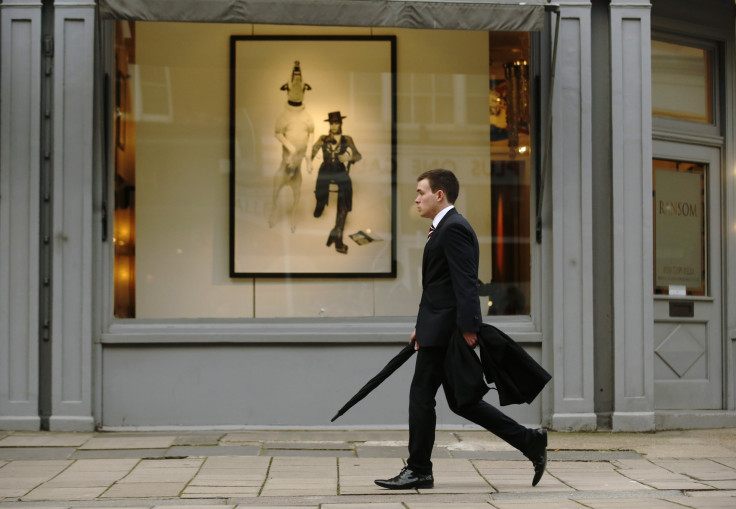UK Inflation Falls Sharply In November To 12-Year Low

(Reuters) - British inflation fell to its lowest level in more than 12 years in November, further easing the squeeze on consumers and leaving the Bank of England under no pressure to raise interest rates.
Reflecting a slide in global oil prices, the consumer price index rose by an annual 1.0 percent in November, compared with 1.3 percent in October, the Office for National Statistics said Tuesday.
Economists taking part in a Reuters poll had expected the CPI to slip back to 1.2 percent.
The 1.0 percent rate was the lowest since September 2002.
The ONS said motor fuel prices fell 5.9 percent compared with November of last year.
Food prices, which have been pushed down by a supermarket price war, fell 1.7 percent, their biggest fall since June 2002, and a slowdown in the rising prices of computer games also helped bring down the headline inflation rate.
The strength of sterling in recent months has also helped push down inflation by cutting the price of imports.
The Bank of England said last month it expects inflation to fall below 1 percent in the next few months, and since then oil prices have fallen further.
BoE Governor Mark Carney would have to explain formally to Finance Minister George Osborne a move in the CPI of more than one percent away from the Bank's 2 percent target.
Such a scenario probably would not be a worry for Osborne.
The fall in inflation has given some respite to British households and average earnings rose by more than prices in September, welcome news for the government ahead of May's elections.
Data on Wednesday is expected to show earnings excluding bonuses picked up more speed in the three months to October to rise 1.5 percent, according to the weekly Reuters poll of economists.
The BoE has predicted CPI will hit its target of 2 percent only towards the end of 2017.
Financial markets are expecting the BoE to start raising rates only in late 2015 or possibly later.
In its release on Tuesday, the ONS said prices at the factory gate fell 0.1 percent in the year to November, less of a fall than forecast by economists, and rose in the month-on-month terms for the first time since April.
Separate data from the ONS showed house prices in Britain rose 10.4 percent in yearly terms in October, compared with 12.1 percent in September.
Other surveys covering the month of November have also shown the rapid pace of house price growth cooling.
In London, property prices rose 17.2 in October compared with the same month of 2013, slowing from a rise of 18.8 percent in September, the ONS said.
© Copyright IBTimes 2024. All rights reserved.











